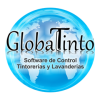“Considering too-much” idioms enjoys featured apparently in the ethnographic knowledge regarding rational worry and depict among cultural principles regarding stress for the DSM-5 (Western Psychological Association, 2013: 834). Given that “thought a lot of” might be said during the degree connected with non-European/Us countries and you can contexts, i attempted to more fully understand polyamoröse Dating-Seiten the newest detailed epidemiology and state-of-the-art concept of these idioms on books. The modern data aimed in order to systematically remark the new “thought an excessive amount of” literature out-of several perspectives: (1) provide an overview of degree at this point by the geographic urban area and you can populace; (2) to spell it out and examine new phenomenology, direction and you can consequences, etiology, and you will vulnerability factors; (3) to look at studies pinpointing related psychological disorders; and you will (4) to look at and compare local effort during the coping with this type of variations out of distress. All of our purpose is to try to bring an out in-depth breakdown and studies off “thinking too much” idioms in an effort to influence the usefulness and variability away from this idea across the societies, plus mention ramifications to have research and you may cures get across-culturally. The brand new feedback is specially timely considering the introduction of “thought excess” among the cultural rules out of distress into the DSM-5.
Methods
, 2009). Basic, we looked seven databases: PubMed, PsychInfo, Websites of Science, SCOPUS, Embase, Sociological Abstracts, Anthrosource, and Anthropology Together with on following the terms: (Anthropology Otherwise Ethnology Or “Cross-Social Research” Or Ethnopsychology Otherwise “Social Services” Or Ethnography Otherwise “cross cultur*” Or “idioms out of worry” Otherwise “psychological state” Otherwise therapy) and you will (“Convinced extreme” Or “Excessively thought” Otherwise “an abundance of thinking” Or “many opinion” Or “unnecessary view”). There had been no limitations when it comes to language otherwise guide date towards some of the searches. At the same time, we featured Google College student towards title “considering way too much” and you will called listservs linked to medical and you may emotional anthropology, transcultural psychiatry, and you can people participatory lookup with the intention that we had because done a reference list as you are able to. Initial guides was indeed accumulated more a-two-few days several months inside , which have another database search presented within the . Books included in the opinion contained articles, publication sections, dissertations, courses, unpublished manuscripts, and reports. Come across Figure 1 to own a listing of our look processes.
Publications had been included to have complete feedback if they satisfied the second criteria: (1) the ebook said “thinking way too much” or a directly associated idiom in the torso of text, (2) the book integrated empirical qualitative, quantitative, or blended-steps research regarding the idiom, and you can (3) the ebook was in English. Off traditional step one, though our very own databases key terms had been wider than simply “thought extreme” (and additionally “too much considering,” “numerous convinced,” “lots of opinion,” and you will “so many thoughts”), it was done in order becoming inclusive within our initially browse. Article on guides next identified men and women referencing another idiom. Unlike people regard to stressed cognition otherwise tricky opinion, the idiom out of distress had to include an element of extreme or “excessive.” Such as, a publishing discussing “problems with view” wouldn’t be sufficient to fulfill introduction criteria. In our Performance, we establish English translations out of idioms as outlined by writers and you will also include idioms throughout the brand new code preferably.
But not, when courses that if you don’t meet addition standards define problems with view as part of their characterization from “considering excessive,” i carry out were such as for instance meanings within data
One or two tips were consumed in looking at brand new courses. Initial, headings and you will abstracts have been reviewed to choose if they found this new above requirements. When your name and conceptual offered diminished pointers to determine whether or not criteria had been came across, the book is actually chosen to possess complete opinion. Next, the brand new courses was in fact categorized as either an “detail by detail” otherwise a beneficial “temporarily said” book. “Intricate” guides worried about “thought too much” as the a main focus of functions and usually offered a qualitative malfunction of your idiom’s phenomenology, etiology, and you will direction. “Temporarily said” guides mentioned “considering continuously” on text however, failed to bring extensive details about the latest idiom. Article writers BNK and EH by themselves assessed all books getting addition/exemption and you may achieved 78% agreement. Within the cases of disagreement, publications was basically appeared collaboratively and you may based on opinion. As well, the authors analyzed and discussed every qualified guides so you can categorize her or him once the “briefly mentioned” otherwise “outlined.”



Comentarios